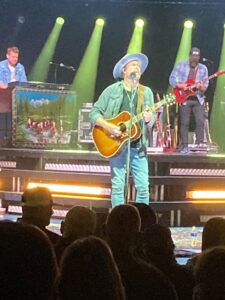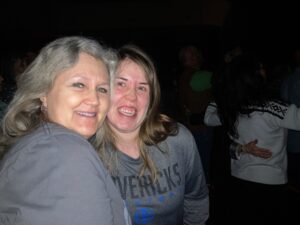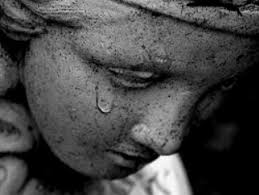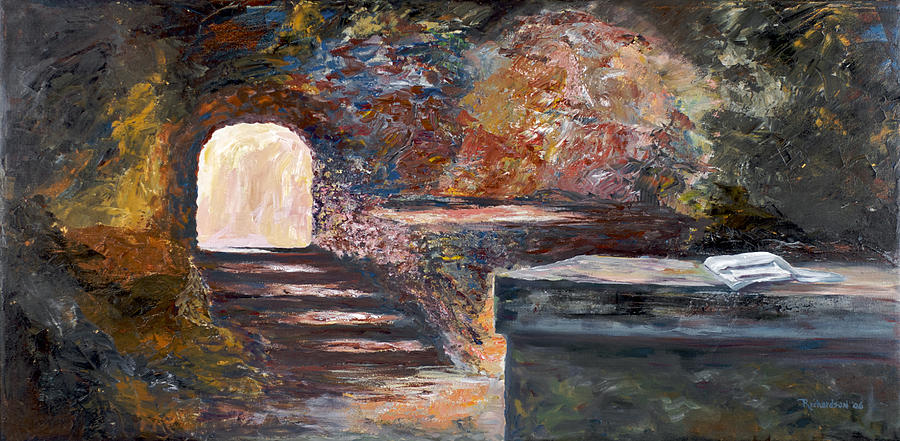Jason Robertson got the playoff hatty last night as the Dallas Stars came from behind to beat Edmonton 5-3 in Game Three of the Western Conference Final. It had been ten games since Robo tickled the twine, but he found the back of the net three times at Rogers Center to propel the Stars to a two-games-to-one series lead. Well, he found the back of the net twice; his third goal was pushed/crammed/willed through Skinner’s right pad and skate to complete the hat trick. The Stars fell behind 2-0 in the first period–we’ve seen this before–and then scored three goals in a 3:33 span in the second period to take the lead. Welcome back, Roope Hintz, who assisted on two of Robertson’s goals. Having Hintz back sure clears up a lot of room for Robertson to operate.
The brooms will be out at AAC tonight as the Mavericks are one win away from the NBA Finals for the first time since they won the whole thing in 2011. If Dallas can complete the sweep and knock out the T-Wolves this evening, it’ll be the first time in NBA history that both conference championship rounds were decided in four games. Boston eliminated the Pacers last night, winning the Eastern Conference four-games-to-none. No Dereck Lively tonight–he’s out with the sprained neck he suffered in Sunday’s game–so there’s a whole lot more riding on Gafford’s play in the paint. I don’t think Maxi Klieber returns from his injury tonight. I think the Mavs do the best they can with a combination of Gafford and Dwight Powell, put Minnesota out of its misery, and then take the full eight days between now and the start of the Finals to get both Maxi and Lively fully healthy for the Celtics. Dallas’ extraordinary depth is being tested now. The Timberwolves are going to take everything to the rim tonight and attempt to bully the Mavs. This is going to be an ugly low-scoring game tonight. And Dallas is going to win it.
~~~~~~~~~~~~~~~~~~~~~~~~~~~~~~~~~~~~~~
I’ve said in this space and from the pulpit here at GCR several times lately that we need to be less concerned about how we do church and more concerned with how God does church. We should relax about our rules and stop worrying about our methods and submit to what God’s Spirit is doing. Instead of fretting about how we do church and debating whether we’re doing it right or wrong, we should just chill.
Well, hold on, preacher! The Bible seems to care about what we can and cannot do during church! The guy who wrote a third of the New Testament laid down a few rules about our Sunday assemblies!
Okay. If you insist. Let’s go there.
I’m assuming you’re thinking about that troubled church in Corinth and the letter Paul wrote to correct their mistakes.
The apostle Paul knows that what we do when we’re together shapes us. Our habits in our worship assemblies are forming us into a particular kind of people. So, Paul’s main concern is that our worship gatherings reflect the Gospel. Our Christian assemblies have to reflect the character of Christ. When he writes to other churches, he expresses his deep desire that Christ be formed in them, that they imitate Christ Jesus who said himself he came not to be served but to serve and to give his life for others. Paul says being united with Christ, having the same attitude as that of Christ Jesus, means considering others better than yourselves, looking to the needs of others.
So, yeah, he spills a lot of ink in his letter to the Corinthians to fix what they’re doing wrong.
In 1 Corinthians 11, Paul says your meetings are doing more harm than good. How harsh is that? It’s brutal. Your church is so bad, your people would be better off if they just slept in on Sundays. Paul says your church is divided. You’ve got cliques and little groups among you and I see it around the table. When you come together, he writes, it’s not the Lord’s Supper you eat; you are eating your own supper! You’re not waiting for others, you’re not sharing God with others; people are going hungry, people are being humiliated; the rich Christians are getting stuffed and drunk and the poor Christians are starving and being singled out as not really belonging. What am I supposed to say to you? Nothing good! So, then, my brothers and sisters, when you come together to eat, wait for each other. Consider the needs of each other. Treat one another as equals.
That’s Paul’s consistent instruction when it comes to what happens in church: consider the others, pay attention to the others, put yourself last.
These Corinthians Christians were showing off their spiritual gifts. They were clamoring for the spotlight in their assemblies and looking down on others based on their spiritual gifts. In chapter 12, Paul says the gifts of the Spirit are given for the common good, they’re supposed to benefit everybody, not just you. In fact, he writes in chapter 14, since you’re so eager to have spiritual gifts, try to excel in the gifts that build up the church.
What’s the problem with speaking in tongues? Well, sometimes there’s no interpreter and nobody knows what you’re saying and it’s not doing anybody any good but yourself. And sometimes y’all are talking over each other, trying to upstage each other, and it’s a mess. You’re not thinking about others. So, brothers and sisters, stop thinking like children. Take turns. Speak one at a time. And if you don’t have an interpreter, don’t speak (sigao) until you get one.
Same thing with prophesy. Take turns. Speak one at a time. Why? What’s the point? So that everyone may be instructed and encouraged. And if you’re speaking and someone else has something to add, the one speaking should stop speaking (sigao) until it’s his or her turn again.
Same thing with women. They were evidently disrupting the gatherings; they, too, were speaking out of turn. Paul uses the same Greek word for stop speaking, sigao. Be quiet until it’s appropriate to speak. Put yourself last. Consider others more important than yourself.
Paul didn’t say stop eating, do away with all the meals. He said, when you come together to eat, be nice to others, treat everyone as equals.
He didn’t say stop speaking in tongues. He said, when you speak in tongues, be considerate of others.
He didn’t say stop prophesying. He said, when you prophesy, take turns. Be polite.
He didn’t tell women to stop praying and prophesying. He said, women, when you pray and prophesy, do it like this. Don’t offend people. Don’t elevate yourself.
So, yes, you’re right. The Bible does give us strict rules about our Sunday worship assemblies. And they’re all centered around treating people the way Jesus treats people. That’s it. Those are the worship rules in the Bible.
We worry about our Sunday mornings. We’re anxious to do everything right. Instead of worrying about whether a worship practice is prescribed or legal, we should be asking if what we do and the way we do it fosters community and equips us for mission. Applying the Gospel to our assemblies is much more important than trying to get it right. Do we value all people? Do we treat everybody the same? Are we striving to make everybody feel welcome and like they belong? Are all people loved in here?
None of the New Testament gives us a set of legally specified and timeless rules for conducting a worship assembly. The New Testament gives us Jesus and the Gospel, embodied by a community, and gathered by the Holy Spirit around word and table, where every person can experience and express the Good News freely and equally, in the name and manner of our Lord Jesus.
Peace,
Allan










Recent Comments